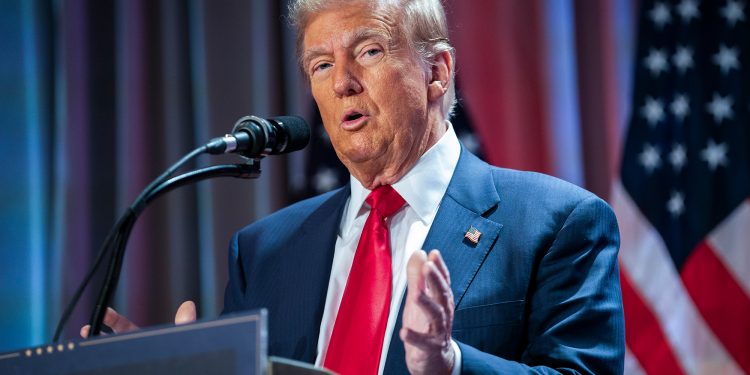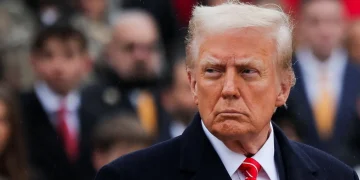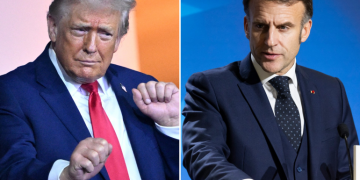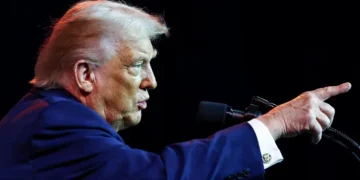President Donald Trump’s move to slap a 10% tariff on most goods imported to the United States, as well as much higher levies on dozens of rivals and allies alike, has intensified a global trade war that threatens to stoke inflation and stall growth.
The sweeping penalties announced against the serene backdrop of the White House Rose Garden on Wednesday immediately unleashed turbulence across world markets and drew condemnation from other leaders now facing the end of decades of trade liberalization that have shaped the global order.
As Asia digested the news on Thursday, Japan’s Nikkei share index slumped to an eight-month low, with U.S. and European stock futures also diving as investors scrambled to the safety of bonds and gold.
China, the world’s No. 2 economy, faced with a fresh 34% tariff on top of the 20% Trump previously imposed, vowed countermeasures, seemingly taking little heed of a warning by U.S. Treasury Chief Scott Bessent that such moves would lead to escalation.
Close allies like Japan and the European Union were not spared, facing 24% and 20% tariff rates respectively. The base 10% tariffs go into effect on April 5 and the higher reciprocal rates on April 9.
EU chief Ursula von der Leyen described the tariffs as a major blow to the world economy and said the 27-member bloc was prepared to respond with countermeasures if talks with Washington failed.
“The consequences will be dire for millions of people around the globe,” she said in a statement.
The “reciprocal” tariffs, Trump said, were a response to duties and other non-tariff barriers put on U.S. goods. He argued that the new levies will boost manufacturing jobs at home.
“For decades, our country has been looted, pillaged, raped and plundered by nations near and far, both friend and foe alike,” Trump said.
Outside economists have warned that tariffs could slow the global economy, raise the risk of recession, and increase living costs for the average American family by thousands of dollars.
Canada and Mexico, the two largest U.S. trading partners, already face 25% tariffs on many goods and will not face additional levies from Wednesday’s announcement.
Even some fellow Republicans have expressed concern about Trump’s aggressive trade policy.
Within hours of Wednesday’s announcement, the Senate voted 51-48 to approve legislation that would terminate Trump’s Canadian tariffs, with a handful of Republicans breaking with the president. Passage in the Republican-controlled U.S. House of Representatives, however, was seen as unlikely.
Trump’s top economist, Stephen Miran, told Fox Business on Wednesday the tariffs would work out well for the U.S. in the long run, even if they cause some initial disruption.
“Are there going to be short-term bumps as a result? Absolutely,” Miran, the chairman of Trump’s Council of Economic Advisors, told the network’s “Kudlow” program.
Source: Reuters




































































